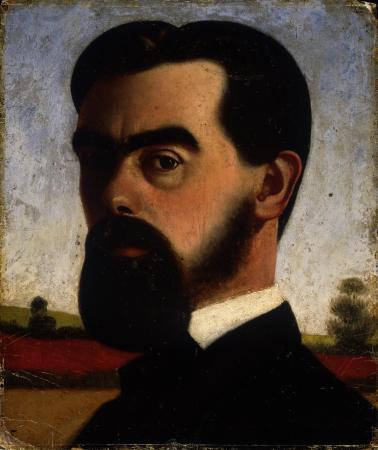“La vie est l’art de tirer des conclusions des prémisses insuffisantes.”
Life is the art of drawing sufficient conclusions from insufficient premises.
en
Samuel Butler était un écrivain britannique principalement connu pour sa satire Erewhon, ou De l’autre côté des montagnes. Wikipedia

“La vie est l’art de tirer des conclusions des prémisses insuffisantes.”
Life is the art of drawing sufficient conclusions from insufficient premises.
en
Life is like music, it must be composed by ear, feeling and instinct, not by rule. Nevertheless one had better know the rules, for they sometimes guide in doubtful cases, though not often
en
“On peut tous faire des grandes choses, si on sait qu’est-ce qu’une grande chose.”
All men can do great things, if they know what great things are.
en
The advantage of doing one’s praising for oneself is that one can lay it on so thick and exactly in the right places.
en
It is far safer to know too little than too much. People will condemn the one, though they will resent being called upon to exert themselves to follow the other.
en
St Anthony tempted the devils quite as much as they tempted him; for his peculiar sanctity was a greater temptation to tempt him than they could stand. Strictly speaking, it was the devils who were the more to be pitied, for they were led up by St Anthony to be tempted and fell, whereas St Anthony did not fall.
en
Life is not so much a riddle to be read as much as a Gordian knot that will get cut sooner or later.
en
Life is a superstition. But superstitions are not without their value. The snail's shell is a superstition, slugs have no shells and thrive just as well. But a snail without a shell would not be a slug unless it had also the slug's indifference to a shell.
en
“C'est facile d'avoir des avis plus justes quand tout le monde les a déjà.”
It's easy to have juster views when everybody else has them.
en
It has, I believe, been often remarked, that a hen is only an egg's way of making another egg.
en
First lines of Butler's translation of The Iliad (1898)
Mental and Physical Pabulum
The Note-Books of Samuel Butler (1912), Part VI - Mind and Matter
Antithesis
The Note-Books of Samuel Butler (1912), Part IV - Memory and Design
On Knowing what Gives us Pleasure, i
The Note-Books of Samuel Butler (1912), Part XIII - Unprofessional Sermons
Fore-knowledge of Death
The Note-Books of Samuel Butler (1912), Part XXIII - Death
Dragons
The Note-Books of Samuel Butler (1912), Part X - The Position of a HomoUnius Libri
Argument http://books.google.com/books?id=JHguFYrTEQ0C&q="We+are+not+won+by+arguments+that+we+can+analyse+but+by+tone+and+temper+by+the+manner+which+is+the+man+himself"&pg=PA329#v=onepage
The Note-Books of Samuel Butler (1912), Part XX - First Principles
Source: Erewhon (1872), Ch. 3
The Odyssey of Homer (1900), opening lines
Source: Erewhon (1872), Ch. 22
Ignorance of Death
The Note-Books of Samuel Butler (1912), Part XXIII - Death
“Men are seldom more commonplace than on supreme occasions.”
Supreme Occasions
The Note-Books of Samuel Butler (1912), Part XVII - Material for a Projected Sequel to Alps and Sanctuaries
Source: Erewhon (1872), Ch. 4
The Ancient Mariner
The Note-Books of Samuel Butler (1912), Part XV - Titles and Subjects
Gentleman
The Note-Books of Samuel Butler (1912), Part II - Elementary Morality
Samuel Butler's Notebooks http://books.google.com/books?id=cjk3AAAAIAAJ&q="The+most+important+service+rendered+by+the+press+and+the+magazines+is+that+of+educating+people+to+approach+printed+matter+with+distrust" (1951)
“It does not matter much what a man hates provided he hates something.”
Hating
The Note-Books of Samuel Butler (1912), Part XIV - Higgledy-Piggledy
Genius, iv
The Note-Books of Samuel Butler (1912), Part XI - Cash and Credit
“Nothing is so cruel as to try and force a man beyond his natural pace.”
Capping a Success
The Note-Books of Samuel Butler (1912), Part X - The Position of a HomoUnius Libri
Ramblings In Cheapside (1890)
Further Extracts from the Note-Books of Samuel Butler http://books.google.pt/books?id=zltaAAAAMAAJ&q=%22A+lawyer's+dream+of+heaven:%22&dq=%22A+lawyer's+dream+of+heaven:%22&hl=pt-PT&sa=X&ei=_LPRUvmtGa_b7AbdjoCADQ&ved=0CFgQ6AEwBjgK, compiled and edited by A.T. Bartholomew (1934), p. 27
“Any fool can tell the truth, but it requires a man of some sense to know how to lie well.”
Falsehood, iii
The Note-Books of Samuel Butler (1912), Part XIX - Truth and Convenience